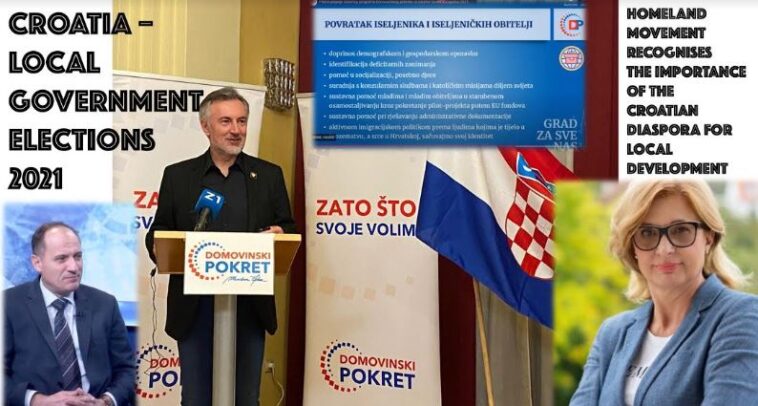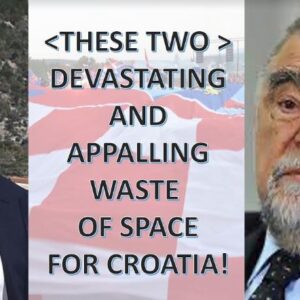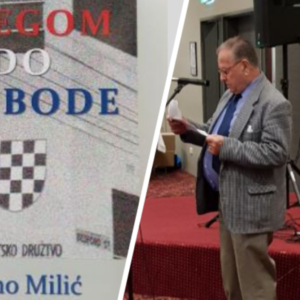Local government elections in Croatia were going to occur in May regardless of the sudden death in March of Zagreb’s long-standing Mayor Milan Bandic. In the local elections, on Sunday, May 16, 2021 (with second round on 30th May), Croatian citizens will elect their representative and executive power for the next four years in 576 local government units. That is how many municipalities, cities and counties Croatia has in which citizens will elect councils and assemblies, as well as mayors, county representatives, prefects and their deputies. And remember, Croatia is a country of just over 4 million people! To say that such atomisation of the country into so many local government units is ridiculous and devastation-prone would be an understatement. But, the bottom line is, and a bitter one at that, is that it keeps the politically suitable in a job! Just as it did in communist Yugoslavia. Full control of a nation under the guise of decentralisation of power and self-government!
With the need to deal with the coronavirus pandemic, which is currently peaking at its third wave with thousands new cases every day, albeit declining, dozens of deaths every day and the visibly crumbling public health care system, and the aftermath of the devastating Zagreb and Banovina earthquakes, it is clear that 2021 local elections will perhaps like never before (in living memory) be all the more demanding. Economic losses from Coronavirus pandemic and the frequent earthquakes that have been serially devastating Zagreb and Banovina around it, since March 2020, have significantly impoverished the country and people.
One would think that local government election platforms should have some consistency with the needs of the whole nation rather than appearing like some individual flickering lights in the skies that glitter individually but together form no contours that would appease the fears for a safe and working future for most if not all. So far, the election platforms seeping out into the media are very much about local issues and, indeed, perhaps this time more than ever before in the history of local government elections we might see votes go to those who are likely to achieve most for the local community. This, of course, is a desired effect in a democratic world but it can be a disaster if local needs fall by wayside of national pursuits and/or priorities that ensure the continuance of projects kick-started by some EU Funds or any funds that have no permanent maintenance or growth. It’s like sticking a band aid on a wound that will not cease festering without proper treatment.
So, it’s like: let’s fix the broken pieces and not worry about the durability of the fix!
With an enormous number of candidates, political parties and independents, running at these elections it is easy to see that the political national cohesiveness towards a national solidarity and togetherness the Prime Minister Andrej Plenkovic/HDZ Party is airing as a most essential component that will save Croatia is falling on deaf ears when it comes to gathering forces in order to fix Croatia as a whole. This is not surprising. Both HDZ and SDP Parties, as largest political parties in the land are losing support and ground by landslides and the smaller parties and independents have seemingly also incorporated into their election promise the use of EU and other funds serving as temporary solution band aids. Not many delve into how to use these funds in order to become independent of them at the other end.
The much-needed job-creation is not surfacing so far as a common thread in election campaigns. For those areas that depend on tourism much of the election campaign energy is being invested in measures to combat the spread of Covid-19 so that the coming tourist season could bear some solid results. This of course, in the current pandemic climate is a “no-brainer”! “You just do what you’ve been doing, and you should be alright” type of a thing!
Of course, for the areas devastated by the earthquakes it is a given that re-building of housing and infrastructure will be a priority. However, apart from political rhetoric and declarations it is at this stage unclear as to how all this will occur outside disaster-relief funds from the EU, which is not a bottomless pit.
What strikes me as indicative of “more of the same”, lame or no real progress in the economy for the next 4 years, is that most candidates and/or political parties vying for local government positions have avoided plans that capitalise on the enormous potential that the Croatian diaspora has in contributing to local economies and job-creation. For decades now those in government in Croatia have persistently spoken of the great potential the Croatian diaspora has for real growth and progress, economic, demographic and overall. But as I have written here many times before, this rhetoric is nothing more than a tool for vote-gathering at parliamentary elections. Nothing much gets done and the laws passed in parliament to not reflect the need for Croatia to truly turn itself towards its diaspora, which is rich in knowledge and financial power. Where better than on the local level to act in order to make come to fruitful life the contribution that Croatian returnees or Croatians investing from the diaspora!
But this is not happening at the 2021 local government elections. Not as far as it can now be seen. Perhaps the coming weeks will prove me wrong (?) It’s turning into a race of largely left-wing, communist Yugoslavia nostalgic political parties used to milking somebody else’s purses (this time the EU’s and the IMF’s) instead of setting up own industry that would ensure prosperous ongoing survival.
The only political party that to my knowledge has accentuated in its official election program the need to involve the Croatian diaspora in the building up of local economic strength is the Homeland Movement Party (stranka Domovinski pokret), headed by Miroslav Skoro. Its election platform has a dedicated chapter on the role of the Croatian diaspora and how to harness its invaluable contribution for the betterment of local economies and demography.
This chapter is titled:
“The Return of Emigrated Croats and Their Families”:
- Contribution to demographic and economic recovery
- Identification of deficient occupations
- Assistance in socialization, especially of children
- Cooperation with consular services and Catholic missions around the world
- Systematic assistance to young people and young families in housing independence through the launch of a pilot project through EU funds
- Systematic assistance in resolving administrative documentation
- Through an active immigration policy towards people whose body is abroad and whose heart is in Croatia, let us preserve our identity




